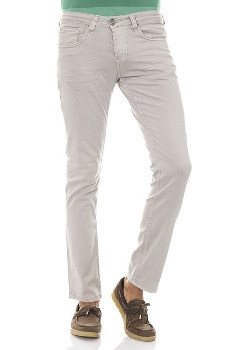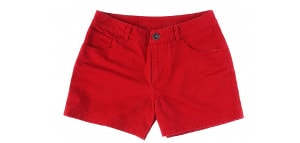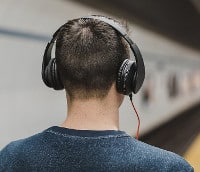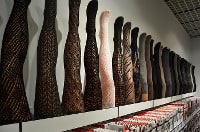-
Nouns
designating objects consisting of two similar halves: scales
«весы»,
tongs
«щипцы»,
pliers, scissors,
spectacles, trousers, etc. But
A
pair of scissors
is
on the table. -
Objects
consisting of many parts: slums
«трущобы»,
bowels
[bau«lz],
movables, goods, etc. -
Some
material nouns: victuals
[‘vitlz]
«провизия»,
perishables
«скоропортящиеся
продукты»,
eats
«еда»,
parings
«очистки»,
leftovers
«остатки»,
slops
«помои»,
seconds
«добавка». -
Some
abstract notions: tidings
«новость»,
auspices
[o:spisi:z] «покровительство»,
makings
«необходимые
качества
для
чего-л»,
nuptials
«свадьба»,
belongings
«владение»,
riches
«богатство»,
aavings
«сбережения»,
goings-on
«поступки,
поведение»,
specifics “matters
to be decided exactly, details”. -
Some
collective nouns: people,
police, infantry, cavalry, gentry, clergy, cattle, poultry, vermin,
jury.
E.g.
Five
cattle
Note:
Collective nouns family,
committee, crew, squad, team, army, board, chorus, government, party,
company, band, group, crowd, shop floor, corps de ballet [ko: d«
‘bQlei]
etc. may
be used both in the Singular and in the Plural. (mainly singular in
American English)
E.g.
Our
family
is large.
(The
whole family is meant as a
unit.)
Our
family
are
early
risers. (The
members of it are
meant.)
Nouns with the Plural Ending -s Construed as the Singular
-
Names of
games: dominoes,
checkers, draughts, cards, billiards, ninepins, tenpins, etc. -
Metonymic
and metaphoric names of people with pejorative connotations:
sawbones
«хирург»,
lazybones
«лодырь»,
butterfingers
«растяпа,
ротозей»,
sparks
(old
fashioned) “an electrician or a radio operator”.
E.g.
The
sawbones
we met was
a
butterfingers.
-
Names of
sciences ending in -s
are normally used in the singular: linguistics,
economics, physics, acoustics, optics, etc., but
when they denote qualities, practical application or activities they
are construed as the plural.
E.g.
The
acoustics
of the room are
horrible.
-
Names of
diseases measles,
mumps are
usually used in the singular, but some speakers prefer the plural
forms. Words like hysterics,
staggers
are used in the plural. -
The words
summons,
canvas, alias are
just regular countable nouns (summonses,
canvases, aliases)
Nouns Used Only in the Plural and Their Homonyms Which May Be Used in the Singular As Well
|
airs ‘affected, |
air ‘the |
|
attentions ‘an |
attention ‘giving |
|
authorities ‘those |
authority ‘power, |
|
colours ‘flag’ |
colour ‘tint’ |
|
contents 1) 2) |
content 1) 2) |
|
customs ‘duties |
custom ‘habit’ |
|
damages ‘compensation |
damage ‘injury |
|
defences (defenses) ‘fortifications’ |
defence (defense) ‘protection |
|
dilapidations BrE |
dilapidation ‘the |
|
effects ‘personal |
effect ‘a |
|
irons ‘fetters, |
iron ‘metal |
|
looks ‘personal |
look ‘glance’ |
|
manners ‘social |
manner ‘ |
|
pictures ‘cinema’ |
picture ‘painting, |
|
premises ‘a |
premise ‘a |
|
quarters ‘lodgings’ |
quarter ‘one |
|
receipts ‘money |
receipt ‘ |
Соседние файлы в предмете [НЕСОРТИРОВАННОЕ]
- #
- #
- #
- #
- #
- #
- #
- #
- #
- #
- #
While there are a vast number of words that exist only in the singular, there are also many words in English that you can use only in the plural.
Singular – there is one thing of it.
Plural – there is more than one thing of it.
So that means that plural words (nouns) usually describe more than one thing. For example, apples means two or more apples.
Easy, right?
Now the special thing with words that exist only in the plural is that they often describe one thing.
Plural Devices
For instance: scissors. You know, the thing that cuts paper. It’s true that they have two legs, but it’s one device right?
There are some more devices which are plural. Here is a small list:
Glasses, sunglasses, goggles, binoculars, bellows, shears, tongs, pliers, tweezers/forceps/pincers, and gallows.
All these device words take the plural verb and also a plural pronoun (they, not it).
Here are some examples of sentences with these devices:
These scissors don’t cut well. Do you have another pair?
Put on your sunglasses. They protect you against UV-radiation that can damage your eyes.
Plural Items of Clothing
Another kind of item that has two parts that make up a whole is certain pieces of clothes.
A pair of trousers (pants in American English) has two legs, but it’s still one piece of clothing. However, trousers or pants use a plural verb.
Some other clothing pairs are shorts, panties, tights, leggings, knickers, underpants, jeans, briefs, pyjamas/pajamas, and braces/suspenders.
For all these, you must use a plural verb, a plural pronoun (they, their, them, these, those) when you refer to them, and you can say: a pair of.
Note: A pair of is a strange expression, because you can use a pair of for two separate things that usually come in twos (i.e. a pair of eyes), as well as for jeans, which has only two legs but actually they form one item.
Compare the following:
A pair of socks – a pair of shorts.
Does A Pair Of also Take a Plural Verb?
The answer is no, not always.
With a pair of you must decide whether the pair is seen as one unit, in which case you use the singular verb.
If you see a pair of things as two things (or people), you should use the plural verb.
You would use the singular verb for the pair of braces in the following sentence:
Those pants are much too wide for him, but a pair of braces holds them up well.
Note that the pants are still with a plural verb, as we’ve learnt above.
Here are two more examples of sentences with plural clothing items, so you can study the verbs and pronouns that come with them:
Aren’t those shorts too cold for a rainy day like this?
A pair of jeans is the most convenient piece of clothing that I own.
Note: Instead of a pair of you can also use a set of.
Plural Nouns with -ics
Examples are: economics and tropics.
- The rule about this is that if the –ics word describes a subject, then it takes a singular verb. Economics is an example of that.
Here is an example sentence with economics. Pay attention to the verb:
Economics does not interest Paul a lot, because he prefers exact science.
- Is the –ics words something that is more than one, it takes a plural verb. Tropics is an example of that.
Here is an example sentence with tropics. Pay attention to the plural verb:
The tropics are home to a great variety of species.
Here is a small list of plural nouns with -ics for subjects (taking a singular verb):
Politics
Statistics
Economics
Mathematics
Electronics (can also be plural when it refers to the electronic parts of techniques in a device).
Physics
Mechanics
Ethics (can also be plural when referring to someone’s personal morals)
Linguistics
Athletics
Genetics
Ceramics (can be plural when speaking about pieces of pottery)
Logistics (can also be plural when it refers to the planning of project)
Aesthetics
Gymnastics
And here are some other plural nouns with –ics that are more than one, and take a plural verb:
Characteristics
Graphics
Tactics
Classics
Dynamics
Antibiotics
Lyrics
Cosmetics
Diabetics (the people suffering from diabetes)
There are many more, but these are some of the more common ones.
Now you can do this quiz about subject and verb agreement.
Quiz
Click here to go to the online quiz.
Choose the right form of the verb (singular or plural) or a singular or plural pronoun.
Still have questions about the subject of this post? Let other learners know in a comment.
Certain English nouns only have a plural form. The form is always plural. Never singular.
There are 3 types of nouns where the form is always plural:
- Certain articles of clothing.
- Certain tools or instruments.
- Other types.
Let’s look at each type in detail.
Certain articles of clothing
The following articles of clothing only have a plural form:
trousers
knickers
pyjamas
shorts
tights
pants
Examples:
I like your trousers.
I like your trouser.
Where are my shorts?
Where are my short?
Where is my short?
Certain tools and instruments.
The following tools and instruments only have a plural form:
headphones
scissors
sunglasses
binoculars
glasses
Examples:
Can I borrow your headphones?
Can I borrow your headphone?
Where did you buy your sunglasses?
Where did you buy your sunglass?
“pair of”
We use the following structure for ONE unit (singular) of the clothes and tools previously mentioned:
“pair of” + noun
Examples:
I need a pair of shorts.
I need a short.
I need a shorts.
I only have one pair of glasses.
I only have one glass.
I only have one glasses.
“pairs of”
We use the following structure for several units (plural):
“pairs of” + noun
Examples:
I am going to buy 3 pairs of shorts.
I am going to buy 3 shorts.
Here are lots of pairs of tights.
Other nouns with only a plural form
belongings
Meaning: Personal things that belong to you. (bag, hat, glasses, scarf)
Example:
Teacher: Do not leave your belongings in the classroom.
savings
Meaning: Money in your bank account. You are saving the money for the future.
Example:
I spent my savings on a new car.
clothes
Meaning: General word for a collection of articles of clothing.
Example:
His clothes are dirty.
stairs
Example:
To go to the first floor, you can take the stairs.
More lessons
IELTS complete guide (WITH EXAMPLE QUESTIONS)
Past continuous tense – English grammar lesson
Countable and uncountable nouns | English grammar
Plural forms of English nouns
Modal verb COULD – Form, use and meaning
Private online English lessons
English video lesson
В английском языке, как и во многих других, названия многих парных предметов употребляются только во множественном числе, например, scissors (ножницы), trousers (брюки), glasses/spectacles (очки), tongs (щипцы), scales (весы):
- These scissors are for cutting paper.
Эти ножницы — для резания бумаги. - Your trousers are too long.
Ваши брюки слишком длинные. - Where are my glasses/spectacles? I want to read the newspaper.
Где мои очки? Я хочу прочитать газету.
Некоторые из таких существительных часто используются с выражением a pair of (пара …), которое подчёркивает, что состоят из двух частей:
- a pair of trousers (пара брюк)
- a pair of jeans (пара джинсов)
- a pair of shoes (пара ботинок/туфель)
- a pair of slippers (пара тапочек)
- a pair of glasses (пара очков)
- a pair of gloves (пара перчаток)
- a pair of earrings (пара серёг)
Примечание
Выше было сказано, что существительное scales (весы) употребляется только во множественном числе как название парного предмета. Это справедливо для весов в их первоначальном виде, когда они представляли собой пару чашек, подвешенных к коромыслу. Но сегодня весы представляют собой электронный прибор для взвешивания, ничего общего не имеющего с весами в их первоначальном виде. Поэтому весы, на которых вы взвешиваетесь у себя в ванной, можно называть и «scales», и «scale». В США это существительное обычно употребляется в единственном числе (scale), а в Великобритании — во множественном (scales), хотя и американцы тоже часто говорят «scales».
Если существительное стоит во множественном числе, то и глагол при нём должен быть во множественном числе: «The scales aren’t weighing correctly … I’m sure of it!» = «Эти весы взвешивают неправильно… Я уверена в этом!»
В английском языке существительные clothes (одежда), goods (товар, товары), stairs (лестница), arms (оружие), riches (богатство, богатства), proceeds (выручка) употребляются, в отличие от русского языка, только во множественном числе:
- Your clothes are dirty.
У тебя грязная одежда. - In these years of globalisation the free trade of goods should not be questioned.
В наше время глобализации нельзя ставить под сомнение свободу торговли. - I ran up the stairs and tore the door open.
Я вбежал вверх по лестнице и рывком открыл дверь. - The police used firearms to disperse the crowd.
Для разгона толпы полиция применила огнестрельное оружие. - The proceeds on the sale of the goods have been transferred into your account.
Выручка от продажи товара переведена на ваш счет.
В английском языке существительные wages (заработная плата) и contents (содержание) употребляются, как правило, во множественном числе, между тем как в русском языке соответствующие существительные употребляются только в единственном числе:
- My wages are high.
Моя заработная плата высокая. - The table of contents should not contain any pictures.
Оглавление (книги) не должно содержать никаких картинок.
Существительные potatoes (картофель), onions (лук), carrots (морковь), oats (овёс) употребляются, в отличие от русского языка, во множественном числе:
- Potatoes are very cheap in autumn.
Картофель очень дешёвый осенью. - Carrots are very healthy.
Морковь очень полезна. - Spanish onions are sweet.
Испанский лук сладкий. - Oats are used as fodder for horses.
Овёс используется в качестве корма для лошадей.
Однако эти существительные могут употребляться и в единственном числе: a potato (картошка, одна штука картофеля), an onion (луковица), a carrot (морковка, один корешок моркови).
Существительные people (люди) и police (полиция), хотя и имеют форму единственного числа, употребляются со значением множественного числа и всегда должны иметь при себе глагол во множественном числе:
- People say that the police are investigating the case.
(Люди) Говорят, что полиция расследует это дело.
Если существительное people имеет значение «народ как нация, верующие одной религии или люди одной расы», то это существительное употребляется в единственном числе и глагол при нём должен быть в единственном числе:
- Hungarians are a hospitable people.
Венгры — гостеприимный народ.
В этом же значении существительное people может также иметь и множественное число. Тогда оно принимает форму peoples:
- The peoples of Europe have been living together for centuries.
Народы Европы живут вместе много веков.
Также как и в русском языке, в английском есть единственное и множественное число. Как правило, большинство имен существительных имеют форму и единственного, и множественного числа (например: box — boxes, flower — flowers, rainbow — rainbows). Правила образования множественного числа довольно простые, и они подробно описаны в статье «Множественное число существительных английского языка».
Но бывают и частные случаи, когда существительное имеет только форму единственного числа или только множественного (scissors – ножницы, всегда множественное; news – новости, всегда единственное число). С этими существительными мы познакомимся в данной статье.
- Мы употребляем во множественном числе существительные, которые идут в паре:
Trousers – штаны (две ноги, мы всегда говорим во множественном числе), а также jeans – джинсы, tights – колготки, shorts – шорты, pants – трусы.
Pajamas – пижама (верх и низ).
Glasses – очки (2 линзы), а также binoculars – бинокль.
- Эти существительные стоят всегда во множественном числе, соответственно они требуют сказуемого во множественном числе:
My jeans don’t suit me at all. – Мои джинсы совсем мне не подходят. (а не my jeans doesn’t)
- Если нужно сказать в единственном числе об этих вещах, то надо употреблять a pair of + эти слова:
Those are fabulous trousers или that is a fabulous pair of trousers. (но никак не a fabulous trousers)
I want some new glasses или I want a new pair of glasses.
- Эти существительные стоят всегда во множественном числе, соответственно они требуют сказуемого во множественном числе:
- Есть такие существительные, которые заканчиваются на -ics, и чаще всего это не множественное число. Например: economics, electronics, maths, politics, physics.
Politics was his favorite subject in his school that is why he became a politician. (но не Politics were)
- Слово news – новости также не является множественным числом, несмотря на то, как мы его переводим, это всегда единственное число:
What is the last news you read in that newspaper? (Но никак не What are the last news)
- Некоторые слова, которые заканчиваются на -s, могут быть и единственным, и множественным числом, как бы парадоксально это не звучало:
means
(средство)a means of communication
(средство общения)many means of communication
(много средств общения)series
(серия)a TV series
(телевизионная серия)four TV series
(4 телевизионных серии)species
(вид, класс)a species of animal
(вид животных)100 species of animals
(100 видов животных)
- Слово news – новости также не является множественным числом, несмотря на то, как мы его переводим, это всегда единственное число:
- Бывает и такое, что некоторые существительные в единственном числе употребляются вместе с формой глагола множественного числа. Например: audience – аудитория, committee – комитет, company – компания, family – семья, firm – фирма, government – государство, staff – коллектив, team – команда. Это так называемые collective nouns или собирательные имена существительные. Вы обратили внимание, что все эти слова называют одну вещь, однако состоят, как правило, из группы людей (семья, группа, команда – все эти явления не могут состоять из одного человека). И мы часто думаем об этих явлениях как о группе людей (they – они), поэтому мы и употребляем глагол в форме множественного числа:
The government (they) don’t want to decrease taxes. – Государство не хочет уменьшать налоги.
- Иногда мы используем множественное число после названий компаний и спортивных команд:
Russia are playing Brazil next Monday. (in a football match) – Россия играет против Бразилии в следующий понедельник. (имеется ввиду футбольный матч)
- Но также возможно с такими словами и употребление формы глагола для единственного числа, все зависит от того, какой смысл вы вкладываете в предложение. Если все члены группы, семьи, государства действуют в унисон, одинаково, делают одну вещь все вместе, то, как правило, мы говорим о них в единственном числе:
The government wants to stop the war. – Государство хочет остановить войну.
- Мы используем глагол во множественном числе со словом police – полиция:
The police have been investigating this crime for more than 6 months! – Полиция расследует это преступление уже более 6 месяцев! (но не has been)
- Но также мы можем говорить о единственном числе, если употреблять такие слова как a police officer / a policeman / a policewoman.
- Иногда мы используем множественное число после названий компаний и спортивных команд:
- Также обычно мы не употребляем слово person – человек во множественном числе (persons). Чаще всего говорят people – люди.
She is a great person. – Она отличный человек.
They are great people. – Они отличные люди. (но не persons)
Many people don’t know where to work. (но не Many people doesn’t know)
- Мы думаем о сумме денег (a sum of money), периоде времени (a period of time), дистанции (a distance) как об одной вещи, поэтому мы используем форму глагола в единственном числе:
Ten million dollars was stolen from the bank. (not were stolen)
Five years is a very long time, anything can happen at this period of time. (not five years are)
Трудно, конечно, бывает сразу же запомнить все эти правила, однако при постоянстве повторения этих правил, вы в скором времени даже не будете замечать, как и где нужно ставить единственное или множественное число.
Тест
Употребление существительных только во множественн
Если вы нашли ошибку, пожалуйста, выделите фрагмент текста и нажмите Ctrl+Enter.










